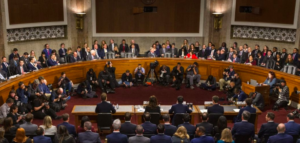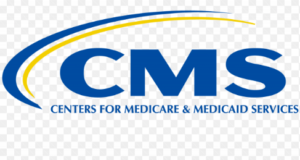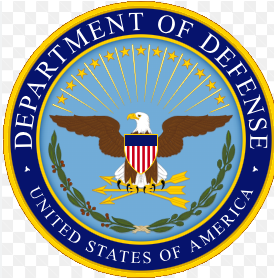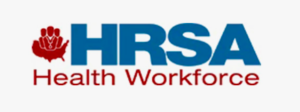- Social Factors Help Explain Worse Cardiovascular Health among Adults in Rural Vs. Urban Communities
- Reducing Barriers to Participation in Population-Based Total Cost of Care (PB-TCOC) Models and Supporting Primary and Specialty Care Transformation: Request for Input
- Secretary Kennedy Renews Public Health Emergency Declaration to Address National Opioid Crisis
- 2025 Marketplace Integrity and Affordability Proposed Rule
- Rural America Faces Growing Shortage of Eye Surgeons
- NRHA Continues Partnership to Advance Rural Oral Health
- Comments Requested on Mobile Crisis Team Services: An Implementation Toolkit Draft
- Q&A: What Are the Challenges and Opportunities of Small-Town Philanthropy?
- HRSA Administrator Carole Johnson, Joined by Co-Chair of the Congressional Black Maternal Health Caucus Congresswoman Lauren Underwood, Announces New Funding, Policy Action, and Report to Mark Landmark Year of HRSA's Enhancing Maternal Health Initiative
- Biden-Harris Administration Announces $60 Million Investment for Adding Early Morning, Night, and Weekend Hours at Community Health Centers
- Volunteer Opportunity for HUD's Office of Housing Counseling Tribe and TDHE Certification Exam
- Who Needs Dry January More: Rural or Urban Drinkers?
- Rural Families Have 'Critical' Need for More Hospice, Respite Care
- Rural Telehealth Sees More Policy Wins, but Only Short-Term
- States Help Child Care Centers Expand in Bid To Create More Slots, Lower Prices
Grantmakers in Health: a New Philanthropic Approach to Supporting Rural Health
A paper from the national nonprofit, Grantmakers in Health, discusses the Imperial Vally Wellness Foundation’s efforts to support community development and health equity through its implementation of the Rural Development Hub model.
Senate Hearing: Examining Public Safety and Justice Resources in Native Communities
 Captions are included in a video recording of 2.5 hour meeting of the U.S. Senate Committee on Indian Affairs that took place on May 22. The link includes transcript of testimony from Bryan Newland from the Department of the Interior, Patrice Kunesh from the Department of Health and Human Services, and Allison Randall from the Department of Justice. Each witness discussed and answered questions from the committee on drug-related crime, human trafficking, and violence and abuse.
Captions are included in a video recording of 2.5 hour meeting of the U.S. Senate Committee on Indian Affairs that took place on May 22. The link includes transcript of testimony from Bryan Newland from the Department of the Interior, Patrice Kunesh from the Department of Health and Human Services, and Allison Randall from the Department of Justice. Each witness discussed and answered questions from the committee on drug-related crime, human trafficking, and violence and abuse.
Discover FORHP’s Rural Health Network Development Planning Program: 2023 Grantee Directory
This resource provides detailed descriptions of 36 projects funded in fiscal year 2023, listing grantees by organization type and focus area, and describing their network structures, geographic areas served, network partners, and contacts for each network.
Addressing Benefits of Becoming a National Health Service Corps Approved Site.
 In this five-minute video, a clinician working at a Rural Health Clinic talks about her experience at an NHSC-approved site in Wisconsin.
In this five-minute video, a clinician working at a Rural Health Clinic talks about her experience at an NHSC-approved site in Wisconsin.
New Data Released on Medicaid and CHIP and Maternal Health
 This infographic from the Centers for Medicare & Medicaid Services (CMS) provides a snapshot of demographics, health outcomes, risk factors, access and utilization, and disparities among Medicaid and Children’s Health Insurance Program (CHIP) beneficiaries seeking pregnancy-related care and those with a recent live birth. It shows the states with the highest percentage of Medicaid and CHIP beneficiaries ages 15-49 living in rural areas as well as the number of general obstetrics and gynecology physicians and advanced practice midwives per 100,000 women ages 15–49. This data analysis informed the Medicaid and CHIP Maternal and Infant Health Initiative Summer 2024 Webinar Series, occurring every Tuesday at 2:00 pm Eastern, and the CMS Affinity Groups scheduled for this fall on maternal mental health and substance use and maternal hypertension and cardiovascular health.
This infographic from the Centers for Medicare & Medicaid Services (CMS) provides a snapshot of demographics, health outcomes, risk factors, access and utilization, and disparities among Medicaid and Children’s Health Insurance Program (CHIP) beneficiaries seeking pregnancy-related care and those with a recent live birth. It shows the states with the highest percentage of Medicaid and CHIP beneficiaries ages 15-49 living in rural areas as well as the number of general obstetrics and gynecology physicians and advanced practice midwives per 100,000 women ages 15–49. This data analysis informed the Medicaid and CHIP Maternal and Infant Health Initiative Summer 2024 Webinar Series, occurring every Tuesday at 2:00 pm Eastern, and the CMS Affinity Groups scheduled for this fall on maternal mental health and substance use and maternal hypertension and cardiovascular health.
DoD Announces Removal of Certain Temporary Regulation Changes Made in Response to COVID-19 for TRICARE
 – Comment by July 23. The U.S. Department of Defense (DoD) issued a direct final rule removing temporary TRICARE regulations established in response to the COVID-19 public health emergency. TRICARE is the health insurance program for active-duty service members and their families. Examples of expiring flexibilities include the removal of the temporary waiver requirement for a three-day prior hospital stay before admission to a skilled nursing facility, the removal of the temporary reimbursement of all long-term care hospitals (LTCHs) at the LTCH prospective payment system standard Federal rate and the removal of the temporary waiver of cost-shares and copayments associated with telehealth services. A disproportionate share of veterans live in rural America. According to the National Center for Veterans Analysis and Statistics and the U.S. Department of Veterans Affairs (VA) Office of Rural Health (ORH), of the nearly 20 million veterans in the United States, 4.4 million live in rural America. 2.7 million, or 61%, of these rural veterans are enrolled in the Veteran Affairs (VA) healthcare system, with 54% of rural enrolled veterans 65 years and older, and 60% affected by a service-related condition.
– Comment by July 23. The U.S. Department of Defense (DoD) issued a direct final rule removing temporary TRICARE regulations established in response to the COVID-19 public health emergency. TRICARE is the health insurance program for active-duty service members and their families. Examples of expiring flexibilities include the removal of the temporary waiver requirement for a three-day prior hospital stay before admission to a skilled nursing facility, the removal of the temporary reimbursement of all long-term care hospitals (LTCHs) at the LTCH prospective payment system standard Federal rate and the removal of the temporary waiver of cost-shares and copayments associated with telehealth services. A disproportionate share of veterans live in rural America. According to the National Center for Veterans Analysis and Statistics and the U.S. Department of Veterans Affairs (VA) Office of Rural Health (ORH), of the nearly 20 million veterans in the United States, 4.4 million live in rural America. 2.7 million, or 61%, of these rural veterans are enrolled in the Veteran Affairs (VA) healthcare system, with 54% of rural enrolled veterans 65 years and older, and 60% affected by a service-related condition.
CMS Seeks Public Comment On Shared Claims Matching Program with Department of Veterans Affairs

– Comment by June 24. The Centers for Medicare & Medicaid Services (CMS) seeks comments on the reestablishment of a matching program between CMS and the U.S. Department of Veterans Affairs (VA) Veterans Health Administration (VHA) titled “Identification and Recovery of Duplicate Payments for Medical Claims.” According to the U.S. Department of Veterans Affairs (VA) Office of Rural Health (ORH), there are 4.4 million veterans living in rural America, with 2.7 million enrolled in the VA health care system. The matching program will assist CMS and VHA in identifying claims where VHA and CMS made duplicate payments for the same healthcare services. The program will be effective 30 days after the publication of the final rule and will begin with an initial term of 18 months (from approximately June 24, 2024 to December 23, 2025).
CMS Releases New Emergency Medical Treatment and Labor Act (EMTALA) Complaint Module
 Last week, the Centers for Medicare & Medicaid Services (CMS) announced that individuals now have the option to file an Emergency Medical Treatment and Labor Act (EMTALA) complaint directly with CMS if they believe their EMTALA rights have been violated by a hospital emergency department. CMS’ new process is in addition to the traditional process of contacting state survey agencies. EMTALA is a federal law that helps prevent any hospital emergency department that receives Medicare funds from refusing to treat patients. The new form is the latest in a series of new resources from CMS to help educate the public about EMTALA.
Last week, the Centers for Medicare & Medicaid Services (CMS) announced that individuals now have the option to file an Emergency Medical Treatment and Labor Act (EMTALA) complaint directly with CMS if they believe their EMTALA rights have been violated by a hospital emergency department. CMS’ new process is in addition to the traditional process of contacting state survey agencies. EMTALA is a federal law that helps prevent any hospital emergency department that receives Medicare funds from refusing to treat patients. The new form is the latest in a series of new resources from CMS to help educate the public about EMTALA.
Take the HRSA Grantee Satisfaction Survey
 Each program director of active HRSA grants has received an invitation to take our new and improved Grantee Satisfaction Survey. With the highest possible response rate through June 10, we can pinpoint crucial areas for action. For general questions about the survey, contact HRSAGranteeSurvey@hrsa.gov
Each program director of active HRSA grants has received an invitation to take our new and improved Grantee Satisfaction Survey. With the highest possible response rate through June 10, we can pinpoint crucial areas for action. For general questions about the survey, contact HRSAGranteeSurvey@hrsa.gov
Analyzing the Latest Alcohol Death Data and Change Over the Last Decade

The health policy nonprofit, KFF, used data from CDC WONDER to examine trends in death caused by alcohol from 2012-2022. The report finds that deaths were highest among people aged 45 to 64, males, people living in rural areas, and American Indian/Alaska native people. Rural areas experienced faster growth in alcohol deaths, driven by sharp rises during the pandemic.
